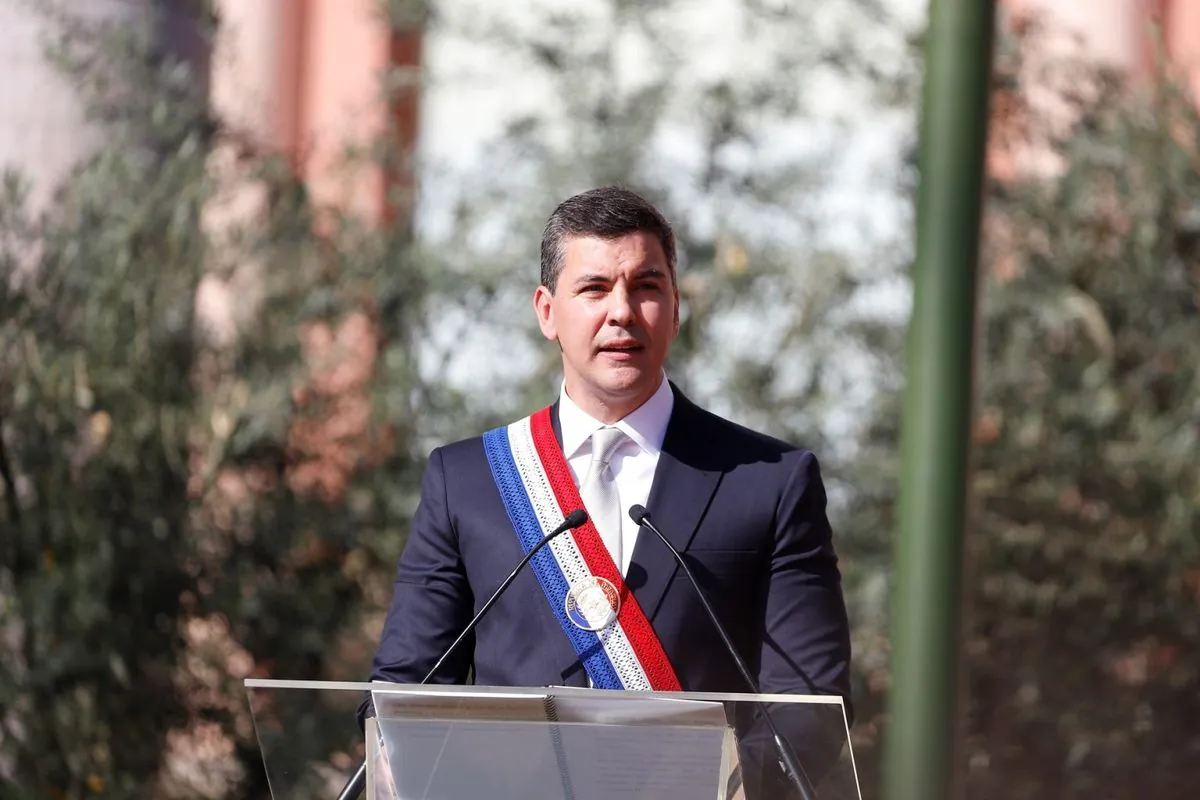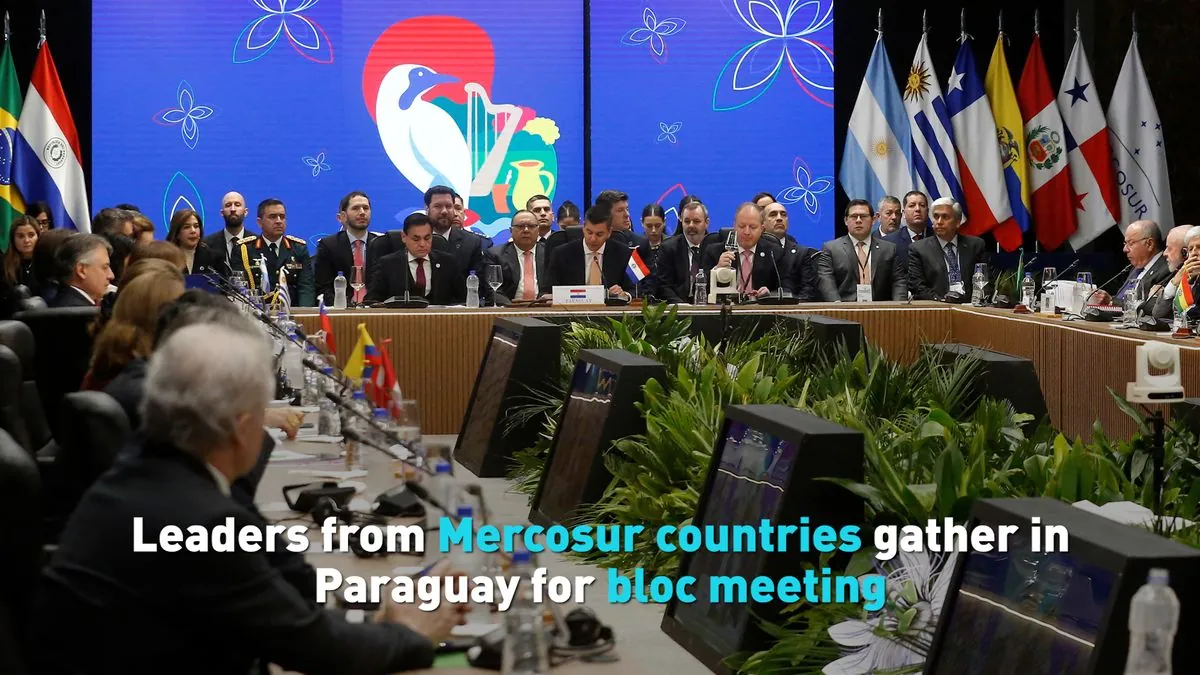Paraguay Open to China Trade via Mercosur Despite Taiwan Ties
Paraguayan President Santiago Pena expresses openness to China trade deals through Mercosur, despite diplomatic relations with Taiwan. The stance aims to boost agricultural exports amid complex regional dynamics.

Santiago Pena, Paraguay's President, has expressed a willingness to engage in trade agreements with China through the South American trade bloc Mercosur, despite his country's diplomatic ties with Taiwan. This stance highlights the complex interplay between economic interests and diplomatic relations in the region.
Paraguay, the sole South American nation maintaining formal relations with Taiwan, has faced challenges in exporting agricultural products to China due to this diplomatic position. China, which asserts sovereignty over Taiwan, typically refrains from trade relations with countries recognizing the island's independence.
"Our position with China is one of total openness. We are in favor of advancing trade agreements."
Pena's statement comes as Mercosur, a customs union established in 1991 that includes Brazil, Argentina, Uruguay, and Paraguay, explores potential trade deals with China alongside ongoing negotiations with the European Union. The bloc, with a combined GDP exceeding $2.5 trillion, has been criticized for its slow progress in establishing agreements with major economies.
On August 12, 2024, Mercosur officials engaged in dialogue with Chinese counterparts in Montevideo, Uruguay's capital. This meeting underscores the growing interest in strengthening economic ties with China, the world's largest soybean importer. Notably, Paraguay ranks as the fourth-largest global exporter of soybeans, highlighting the potential economic benefits of improved trade relations.

The Paraguayan President acknowledged varying levels of interest among Mercosur members regarding a potential China trade deal. He noted Brazil's cautious approach and Uruguay's keen interest, emphasizing Paraguay's support for bloc-wide discussions.
This development occurs against the backdrop of Paraguay's long-standing diplomatic relations with Taiwan, established in 1957. Taiwan provides significant economic aid and technical assistance to Paraguay, further complicating the diplomatic landscape.
As Mercosur continues to navigate these complex trade negotiations, the bloc faces the challenge of balancing individual member interests with collective economic goals. The potential China trade deal, alongside the long-awaited EU-Mercosur agreement, could significantly impact the region's economic landscape, potentially creating one of the world's largest free trade areas.
The situation underscores the delicate balance Paraguay must strike between maintaining its diplomatic stance and pursuing economic opportunities. As global trade dynamics evolve, the country's ability to navigate these complexities may shape its economic future within the Mercosur bloc and beyond.


































